
William Martin Joel, affectionately known as the “Piano Man” after his signature 1973 song, stands as an indelible figure in American music. With a career spanning decades, Joel has not only sold over 160 million records worldwide, establishing himself as one of the world’s best-selling music artists, but he has also carved out a unique narrative in the annals of pop and rock history. His journey, marked by prolific songwriting, captivating performances, and a profound connection to his roots, offers a compelling portrait of an artist who continually sought to evolve while remaining true to his distinct voice.
From his humble beginnings on Long Island to commanding stages across the globe, Joel’s story is one of perseverance, artistic exploration, and immense commercial success. His work, characterized by tightly-structured melodies and down-to-earth songwriting, has resonated with millions, earning him numerous accolades including six Grammy Awards and inductions into prestigious halls of fame. This article delves into the foundational periods of Joel’s remarkable career, exploring the pivotal moments and albums that shaped him into the musical icon he is today.
His narrative, as extensive and rich as the melodies he composed, reveals an artist deeply influenced by classical music, early rock & roll, and rhythm & blues. Through a meticulous examination of his early life, the formation of his musical identity, and the albums that cemented his status, we gain a comprehensive understanding of the forces that propelled Billy Joel from a high school dropout with a dream to a global phenomenon whose music continues to captivate audiences and define generations. Our journey begins at the very start, in the Bronx, where the future Piano Man first entered the world.
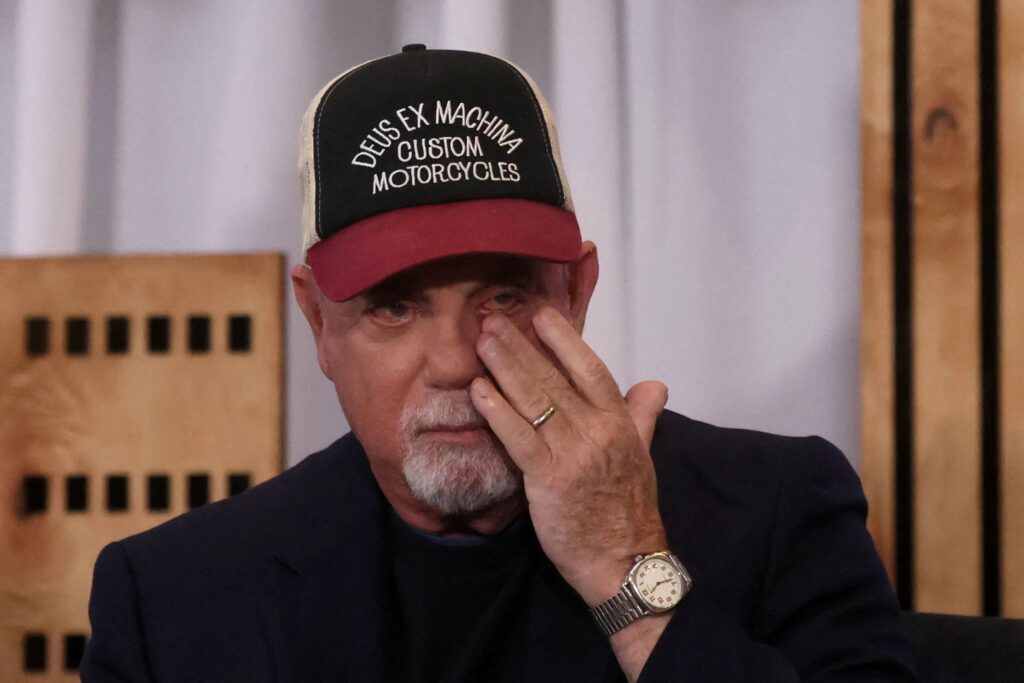
1. **Early Life and Formative Years**Born on May 9, 1949, in the Bronx, New York, William Martin Joel’s early life was shaped by a blend of cultural heritages and a nascent connection to music. At age one, his family relocated to Hicksville on Long Island, where he and his adopted cousin, Judy, were raised in a suburban setting that would later subtly influence his lyrical landscapes. His mother, Rosalind, born in Brooklyn to Jewish emigrants from England, played a crucial role in his early musical development, insisting he take piano lessons from a young age.
Joel’s father, Howard, born Helmut Joel in Nuremberg, Germany, came from a prosperous Jewish family, whose mail-order textile company, Joel Macht Fabrik, was the second largest of its type in Germany before being forcibly sold under the Nazi regime. Escaping to Switzerland and then Cuba before settling in the United States, Howard, an accomplished amateur classical pianist, instilled a love for music, even as he pursued a career as an engineer. Despite his parents’ Jewish heritage, Joel did not grow up in a religious household, identifying later in life as a Jewish atheist, having been baptized in a Church of Christ at age 11.
Reluctantly, Joel began formal piano lessons at four, continuing until around 16, with notable teachers like Morton Estrin and Timothy Ford. His natural talent was evident, as he would sometimes improvise in the style of a composer to avoid reading music. Beyond the piano, Joel also pursued boxing as a teenager, competing on the amateur Golden Gloves circuit as a welterweight, ultimately abandoning the sport after breaking his nose, having won 22 of his 26 fights.
Joel attended Hicksville High School but did not graduate with his class in 1967. He missed a crucial English exam due to a late-night gig at a piano bar, where he played to help support his mother and sister. Rather than attending summer school to earn his diploma, he declared his intent to pursue a music career, famously stating, “To hell with it. If I’m not going to Columbia University, I’m going to Columbia Records, and you don’t need a high school diploma over there.” He eventually received his diploma 25 years later, in 1992, after submitting essays to the school board.
Read more about: Toumani Diabaté, Malian Master of the Kora, Who Transcended Borders and Carried a Rich West African Legacy to the World, Dies at 58
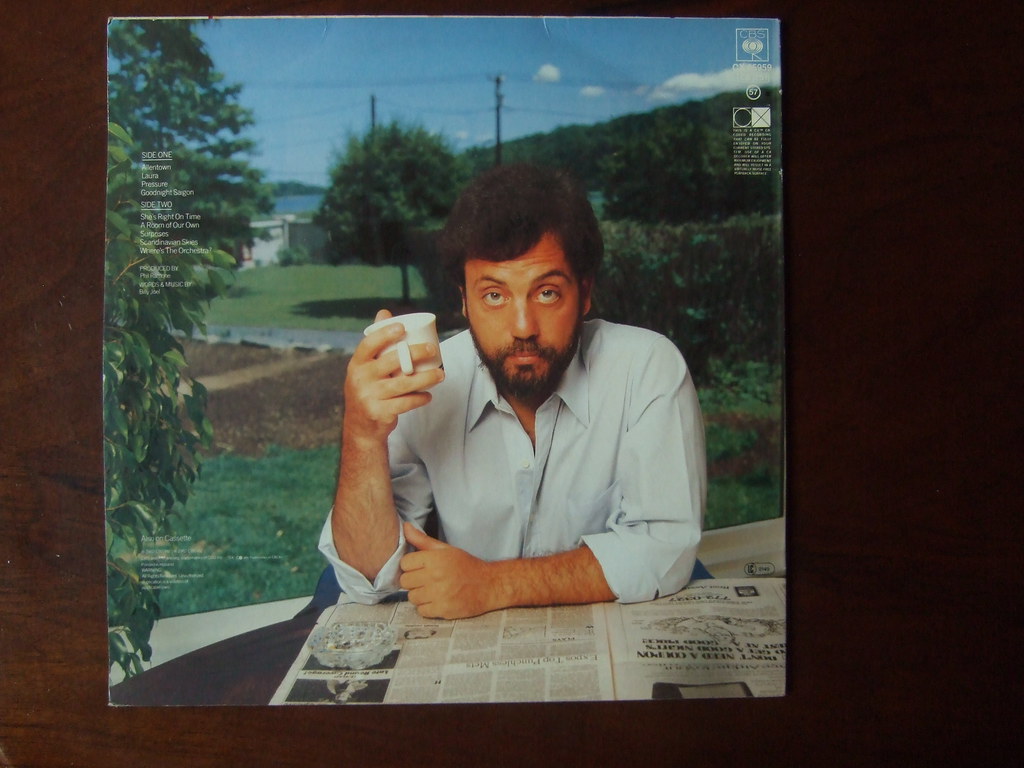
2. **The Genesis of a Musician: Early Bands and First Solo Steps**While classical music infused his compositions, it was the raw energy of early rock & roll and rhythm & blues artists like Elvis Presley and the Everly Brothers that fundamentally shaped Joel’s tightly-structured melodies and down-to-earth songwriting. However, a pivotal moment in his artistic awakening occurred when he witnessed The Beatles on The Ed Sullivan Show. This performance, as he later commented, “changed my life,” sparking his determination to pursue a career in rock music, drawn to the authenticity and rebellious spirit he perceived in John Lennon.
At 16, Joel joined The Echoes, a band specializing in British Invasion covers, and began recording in 1965, playing piano on several records for Kama Sutra Productions and Shadow Morton. He notably played on a demo version of “Leader of the Pack,” a major hit for the Shangri-Las in 1964, and claimed involvement in their song “Remember (Walking in the Sand).” The Echoes later rebranded, first as the Emeralds and then the Lost Souls, before Joel departed in 1967.
His next venture was with The Hassles, a Long Island group signed to United Artists Records. Over a year and a half, they released four singles and two albums, *The Hassles* and *Hour of the Wolf*, but none achieved commercial success. In 1969, Joel and drummer Jon Small left to form the duo Attila, releasing an eponymous debut album in July 1970. This partnership, however, dissolved the following October amidst personal turmoil when Joel began an affair with Small’s wife, Elizabeth, whom he later married.
Following the disbandment of Attila, Joel signed a contract with Family Productions, embarking on his solo career. His debut album, *Cold Spring Harbor*, named for a hamlet on Long Island, was recorded under this deal. Despite the owner, Artie Ripp, claiming to have invested US$450,000 in Joel’s development, the album suffered a critical mastering error—it was pressed at too high a speed, resulting in a technical and commercial disappointment. Songs like “She’s Got a Way” and “Everybody Loves You Now” were initially overlooked, only gaining recognition through live versions on his 1981 album, *Songs in the Attic*.

3. **The “Piano Man” Era: From Philadelphia Airwaves to Columbia Records**Despite the initial setbacks of *Cold Spring Harbor*, Joel’s talent began to garner attention during his tour in the fall of 1971. He performed throughout the mainland United States and Puerto Rico, opening for acts such as the J. Geils Band and The Beach Boys. His performance at the Puerto Rican Mar y Sol Pop Festival was particularly well-received, though Joel declined to have it included on the compilation album, demonstrating an early assertiveness in controlling his artistic output.
A significant turning point arrived on April 15, 1972, when WMMR-FM radio in Philadelphia broadcast a live performance of Joel’s songs. The recording, repeatedly played by DJ Jonathan Takiff, led to “Captain Jack” becoming the most requested track in the station’s history, quickly morphing into an underground hit across the East Coast. This regional success caught the ear of Herb Gordon, a Columbia Records executive, who brought Joel to the attention of company president Clive Davis.
Impacting his career profoundly, Joel signed a recording contract with Columbia Records in 1972. He subsequently moved to Los Angeles, residing there for three years, a period that proved to be both challenging and creatively fertile. For six months, he worked anonymously at The Executive Room piano bar on Wilshire Boulevard, using the alias “Bill Martin” to support himself.
It was during this time, observing the diverse patrons of the piano bar, that Joel composed his iconic signature song, “Piano Man.” The song vividly captured the lives and stories of the bar’s regulars, cementing his reputation as a master storyteller. Even after signing with Columbia, Joel was contractually obliged to pay a share of his royalties to Archie Ripp and Michael Lang, a situation that would later be rectified in 1981 when CBS/Columbia Records president Walter Yetnikoff bought these rights and gifted them to Joel on his birthday, reportedly after threatening Ripp to close the deal.
Joel’s first album under the Columbia label, *Piano Man*, was released in 1973. Although its initial sales were modest, the album’s title track quickly became his signature song, a staple that concludes nearly every concert to this day. The album also showcased his evolving band, featuring a rotating lineup of musicians including Doug Stegmeyer, who would remain with Joel until 1989. His songwriting began to attract broader recognition, exemplified in 1974 when Helen Reddy recorded “You’re My Home,” a track from *Piano Man*, further solidifying his burgeoning reputation.
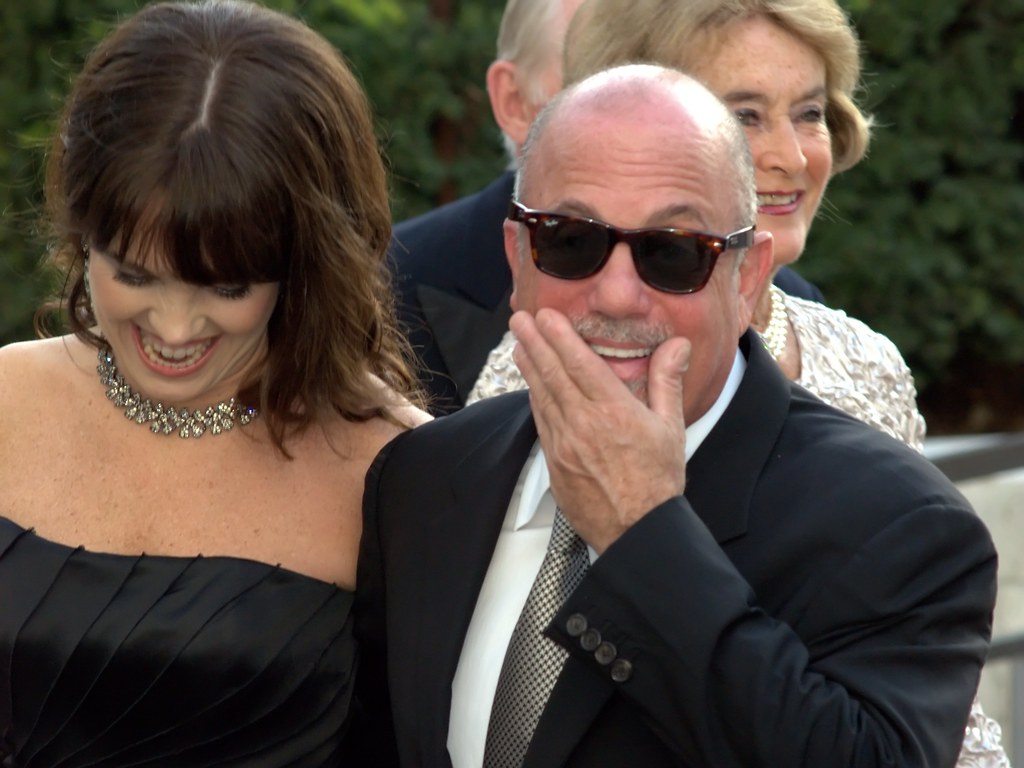
4. **Refining the Craft: *Streetlife Serenade* and *Turnstiles***In 1974, Joel recorded his second Columbia album, *Streetlife Serenade*, in Los Angeles. During this period, his management shifted from Jon Troy, an old friend, to his wife, Elizabeth, indicating a consolidation of personal and professional aspects of his life. The album’s lyrical content delved into themes of suburbia and the inner city, reflecting Joel’s observations of American life. It is perhaps most notably remembered for “The Entertainer,” a No. 34 hit in the U.S.
“The Entertainer” served as a sarcastic rejoinder to the music industry’s tendency to edit songs for radio play, particularly after his hit “Piano Man” had been significantly truncated. Joel’s lyrics, “If you’re gonna have a hit, you gotta make it fit, so they cut it down to 3:05,” highlighted his frustration with these commercial pressures. While *Streetlife Serenade* generally received unfavorable reviews from critics, it contained notable tracks such as “Los Angelenos” and “Root Beer Rag,” an instrumental that became a staple of his live performances throughout the 1970s.
Following the release of *Streetlife Serenade*, Joel almost immediately began working on his subsequent album, *Turnstiles*. The production process for *Turnstiles* proved to be arduous, involving multiple producers—Michael Stewart and James William Guercio—and even members of Elton John’s backing band. Dissatisfied with the initial results and increasingly disenchanted with Los Angeles, where he encountered anti-New York sentiment, Joel made the decisive choice to return to the East Coast in 1975, seeking fresh inspiration amidst the city’s complex vibrancy.
Upon his return, Joel took the reins as producer, rerecording and completing *Turnstiles*, which was released in 1976. This album marked a significant turning point as it was the first to feature his regular touring band, establishing a cohesive musical unit that would support him for years. “Say Goodbye to Hollywood” emerged as a minor hit, and while Joel later cited vocal cord issues for not performing it, he did bring it back for a live performance in 2014. Despite not being released as a single, “New York State of Mind” became one of Joel’s most iconic songs, covered by Barbra Streisand and performed as a duet with Tony Bennett. Other notable tracks from *Turnstiles* include “Summer, Highland Falls,” “Miami 2017 (Seen the Lights Go Out on Broadway),” and the enduring concert favorite, “Prelude/Angry Young Man.”
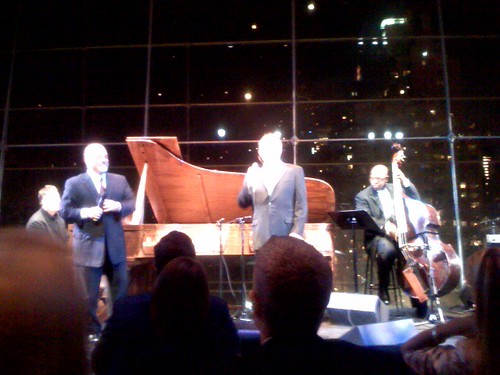
5. **The Breakthrough: *The Stranger* and Global Acclaim**The period following the *Turnstiles* tour proved to be pivotal, leading to one of Joel’s most significant artistic collaborations. His wife, Elizabeth, initially attempted to recruit George Martin, the legendary Beatles producer, for Joel’s next album. However, after witnessing Joel perform live, Martin declined the invitation. Undeterred, Elizabeth reached out to Phil Ramone, a producer Joel had expressed a desire to work with. Ramone attended Joel’s Carnegie Hall concert on June 2, 1977, and was profoundly impressed by the performance. This encounter marked the beginning of a highly fruitful partnership, with Ramone producing all seven of Joel’s studio albums from 1977 to 1986.
Their first collaboration, *The Stranger* (1977), proved to be an enormous commercial success and unequivocally “established Joel as a household name.” The album became a cultural touchstone, yielding four Top-25 hits on the Billboard charts: “Just the Way You Are” (No. 3), “Movin’ Out” (No. 17), “Only the Good Die Young” (No. 24), and “She’s Always a Woman” (No. 17). It was Joel’s first Top Ten album, soaring to number two on the charts and achieving multi-platinum status, even surpassing Simon & Garfunkel’s *Bridge over Troubled Water* as Columbia’s previous bestselling album.
“Just the Way You Are,” a tender ballad written for his first wife, Elizabeth Weber, and reportedly inspired by a dream, garnered Joel Grammy Awards for both Record of the Year and Song of the Year, solidifying his stature as a premier songwriter. The album also featured enduring classics like “Scenes from an Italian Restaurant,” an album-oriented rock staple and one of Joel’s personal favorites, which remains a firm fixture in his live shows. Another highlight, “Vienna,” also a personal favorite of Joel’s, has become one of his most streamed songs on the internet, illustrating its lasting appeal. *Rolling Stone* later acknowledged the album’s profound impact by ranking *The Stranger* as the 70th greatest album of all time.
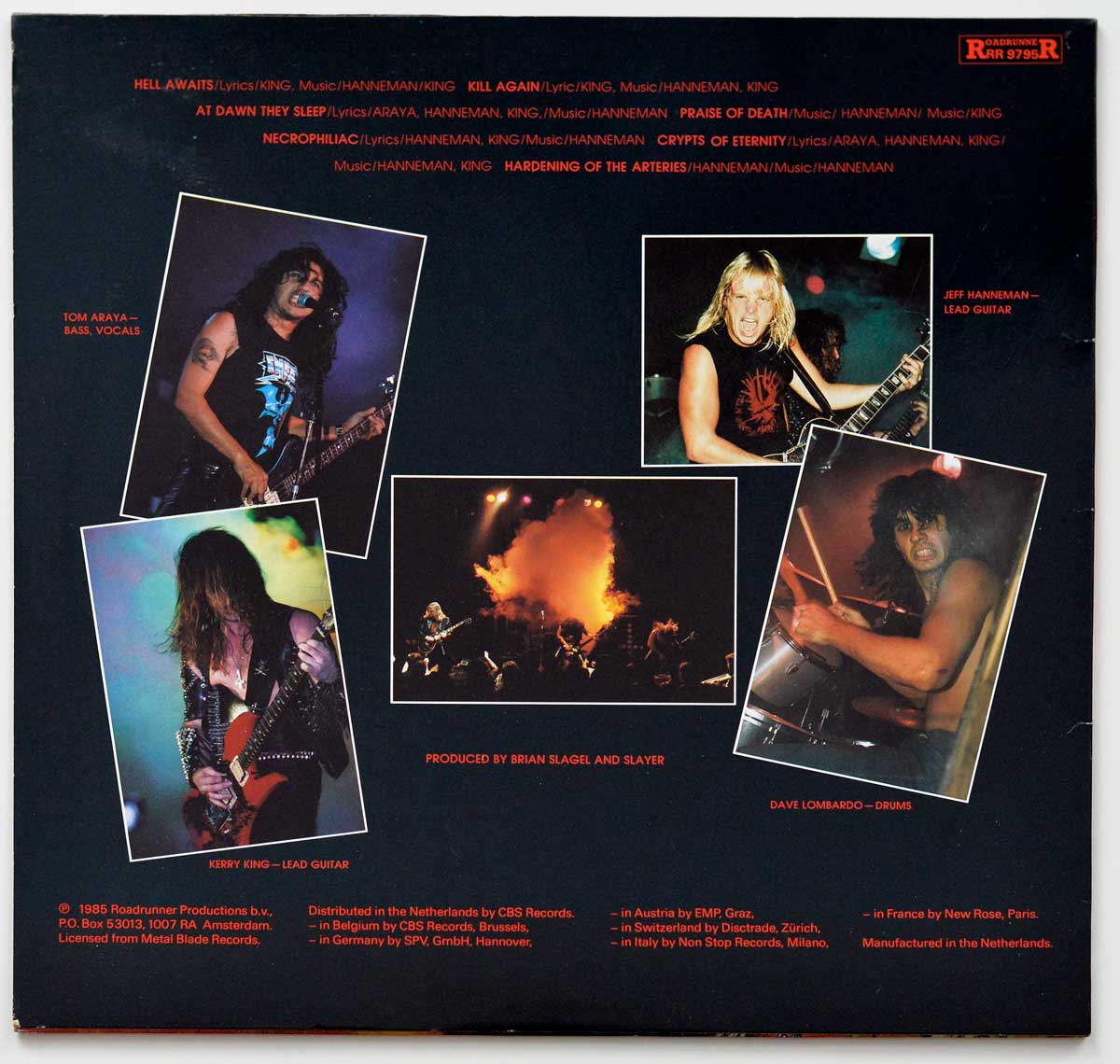
6. **Reaching New Heights: *52nd Street* and Grammy Recognition**Building on the monumental success of *The Stranger*, Billy Joel released *52nd Street* in 1978, naming the album after Manhattan’s 52nd Street, which at the time served as the world headquarters of CBS/Columbia. The album proved to be another commercial powerhouse, selling over seven million copies and cementing Joel’s position at the pinnacle of popular music. It was propelled to the number one spot on the charts by a trio of hit singles: “My Life” (No. 3), “Big Shot” (No. 14), and “Honesty” (No. 24). The song “My Life” also gained further recognition when a cover by Gary Bennett was adopted as the theme song for the popular television sitcom *Bosom Buddies*.
*52nd Street* continued Joel’s Grammy-winning streak, earning him awards for Best Pop Vocal Performance, Male, and the coveted Album of the Year, underscoring both his critical acclaim and widespread appeal. The album further showcased his versatility and mastery of pop-rock songwriting, solidifying his reputation as an artist capable of both commercial success and artistic depth. His live performances during this era also reached new milestones, marking the beginning of a legendary association with one of New York City’s most iconic venues.
In 1978, Joel performed the first of what would become at least 150 shows at New York City’s Madison Square Garden, a venue he has since described as a “dream come true.” He currently holds the record for most concerts performed at the storied arena, a testament to his enduring popularity and his deep connection with his New York audience. This era also saw Joel expand his international presence in unique ways, demonstrating his willingness to engage with diverse cultural landscapes.
In 1979, Joel embarked on a historic journey to Havana, Cuba, to participate in the Havana Jam festival from March 2–4. He performed alongside a diverse lineup of American and Cuban artists, including Rita Coolidge, Kris Kristofferson, Stephen Stills, and the Fania All-Stars. While Joel’s performance was considered a highlight of the weekend by many, CBS was unable to record or film it as planned due to an objection from his wife regarding the lack of a specific deal. He was later interviewed about this unique experience for Ernesto Juan Castellanos’s documentary, *Havana Jam ’79*. A technological milestone also accompanied *52nd Street*, as it became the first commercially released album on the then-new compact disc format in 1982, marking its place in music history beyond its musical content alone.
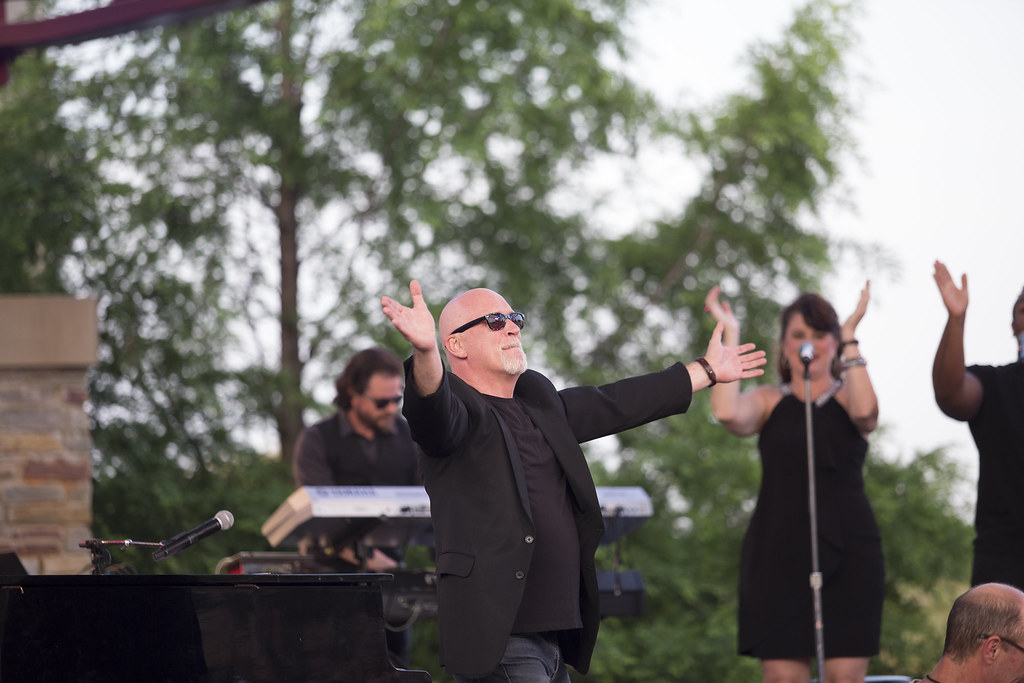
7. **Glass Houses and the Assertion of a Rocker Image**Following the immense success of *The Stranger* and *52nd Street*, Billy Joel confronted a critical perception labeling him a ‘balladeer’ or ‘soft rocker.’ This categorization, he felt, was unfair, prompting a deliberate artistic shift for his 1980 release, *Glass Houses*. Joel aimed to decisively demonstrate his versatility and capacity for more aggressive, rock-oriented compositions, asserting his identity beyond mere melodic charm. The album’s cover, depicting Joel in a leather jacket poised to throw a rock at his home’s window, visually declared his rebellion against these preconceived notions.
Musically, *Glass Houses* embraced a harder edge, occasionally referencing the emerging new wave rock style, a stance that resonated profoundly. The album spent six weeks atop the Billboard chart and generated successful singles like ‘You May Be Right’ and ‘Don’t Ask Me Why.’ Most notably, ‘It’s Still Rock and Roll to Me’ became Joel’s first single to claim the No. 1 spot on the Billboard Hot 100, unequivocally proving his rock credentials and becoming the ninth biggest-selling single of that year.
The commercial triumph of *Glass Houses* was underscored by its critical recognition, earning Joel the 1981 Grammy Award for Best Rock Vocal Performance, Male, and the American Music Award for Favorite Album, Pop/Rock category. The album also marked Joel’s inaugural venture into combining music with narrative video content, as ‘Sometimes a Fantasy’ lent its name to a 15-minute promotional film he himself wrote and directed, extending his artistic vision beyond audio recordings.

8. **Songs in the Attic and the Ambitious Themes of The Nylon Curtain**Bridging the gap between *Glass Houses* and his subsequent thematic explorations, Joel released *Songs in the Attic* in 1981. This unique album presented live performances of lesser-known songs from his early career, recorded across various U.S. venues. Its crucial purpose was to introduce his substantial fanbase, many of whom discovered him after *The Stranger*, to his foundational compositions previously unnoticed.
*Songs in the Attic* achieved a respectable No. 8 on the Billboard chart, yielding ‘Say Goodbye to Hollywood’ and ‘She’s Got a Way’ as hit singles, ultimately selling over three million copies. Joel considered it a success for recontextualizing earlier works, allowing him to revisit his past while preparing for a new, more ambitious chapter.
The ‘next wave’ of Joel’s career was *The Nylon Curtain*, released in 1982, representing a significant artistic leap. Joel delved into highly topical and socio-political songwriting, tackling themes of the American Dream and shifts during the Reagan administration, reflecting a deeper engagement with societal commentary than previously explored.
Beyond lyrical depth, *The Nylon Curtain* marked heightened ambition in studio production. Joel aimed to ‘create a sonic masterpiece,’ dedicating meticulous craftsmanship to the album’s sound. Production was delayed for months after a serious motorcycle accident in April 1982, where he suffered a crushed left thumb and dislocated wrist. Despite this setback, the album reached No. 7, benefiting from heavy MTV airplay for ‘Allentown’ and ‘Pressure,’ and earning him a Grammy nomination for Best Video Album.
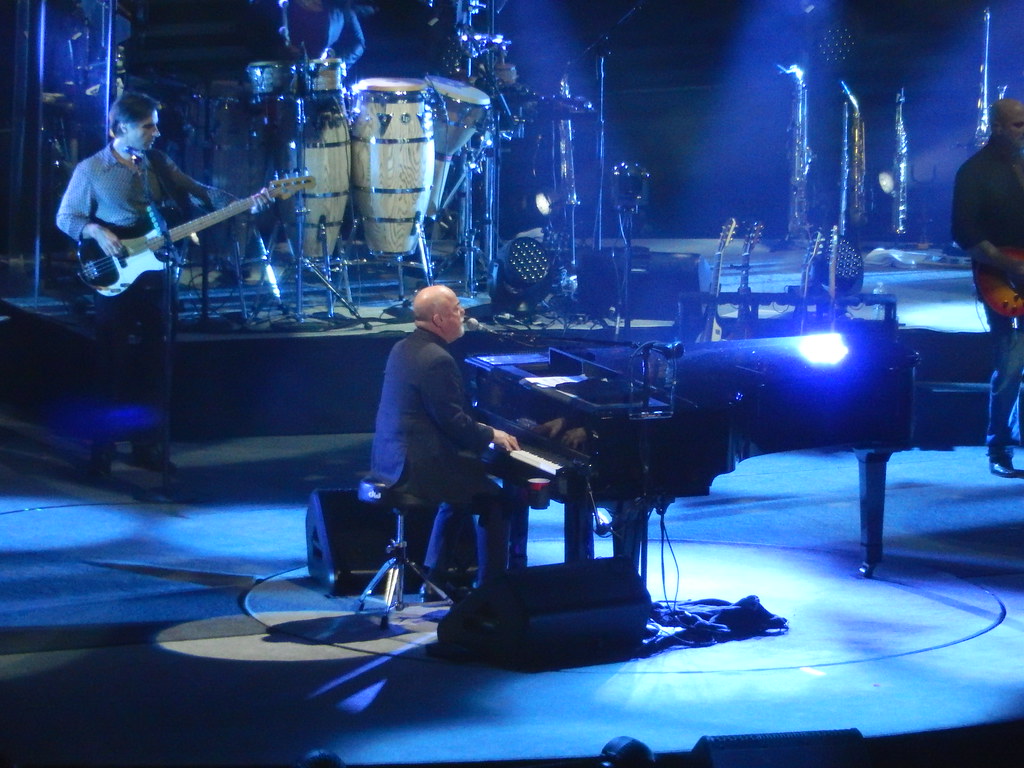
9. **A Lighter Touch and Homage: An Innocent Man**In a distinct stylistic departure from *The Nylon Curtain*’s gravitas, Billy Joel’s *An Innocent Man*, released in 1983, adopted a markedly lighter, nostalgic tone. This record served as his heartfelt tribute to the rhythm and blues and doo-wop music of the 1950s and 1960s, an era that profoundly influenced his musical development. It was a joyful immersion into the sounds and sentiments of his youth, showcasing his versatility and deep appreciation for musical history.
The album became an instant triumph, yielding an extraordinary six top-30 singles, a record within Joel’s catalog. It quickly ascended to No. 4 on the U.S. charts and No. 2 in the UK. The lead single, ‘Tell Her About It,’ became Joel’s second Billboard number-one hit. Among its many tracks, ‘Uptown Girl’ became a global hit, famously inspired by a serendipitous encounter with supermodels including Christie Brinkley, who later starred in its iconic music video and married Joel in 1985.
The album’s success continued with singles like the title track ‘An Innocent Man,’ ‘The Longest Time,’ ‘Leave a Tender Moment Alone,’ and ‘Keeping the Faith.’ Critically, *An Innocent Man* was praised for its ‘effortlessly spinning out infectious, memorable melodies.’ Despite its immense popularity, it was nominated for Album of the Year but ultimately lost to Michael Jackson’s monumental *Thriller*.

10. **The Bridge and Groundbreaking International Ventures**Following the retrospective success of *Greatest Hits Vol. 1 and 2*, Billy Joel released *The Bridge* in 1986. While this album didn’t achieve the stratospheric sales of its predecessors, it still yielded notable hits such as ‘A Matter of Trust’ and ‘Modern Woman’ (both No. 10), with the latter featuring in the film *Ruthless People*. This album also marked a significant professional transition, being his final under the Family Productions logo, after which he severed ties with Artie Ripp.
Despite its commercial performance, Joel harbored reservations about *The Bridge*, later describing it as ‘not a good album’ and expressing dissatisfaction with most of its songs. His request for more time to produce superior material was denied, highlighting creative pressures. This period also saw Joel participate in the USA for Africa ‘We Are the World’ project in 1985, contributing his voice to a global charitable effort.
A truly groundbreaking chapter unfolded in July 1987, when Joel embarked on a historic tour of the Soviet Union. This audacious undertaking, involving his family and full touring band, represented one of the first fully staged pop-rock shows to grace Soviet soil. He delivered six high-energy concerts in Moscow and Leningrad to over 100,000 people, marking the first live rock radio broadcast in Soviet history. The tour, however, presented unique challenges, including a hesitant audience and security removing ‘overreacting’ individuals.
Frustrated by stage lights, Joel famously flipped his electric piano and snapped a microphone stand mid-song, an act for which he later apologized. Despite estimated personal financial losses exceeding US$1 million, Joel valued the goodwill encountered, documenting the tour in the live double album *КОНЦЕРТ* and solidifying his legacy as an artist willing to transcend political and cultural boundaries.
Read more about: Toumani Diabaté, Malian Master of the Kora, Who Transcended Borders and Carried a Rich West African Legacy to the World, Dies at 58
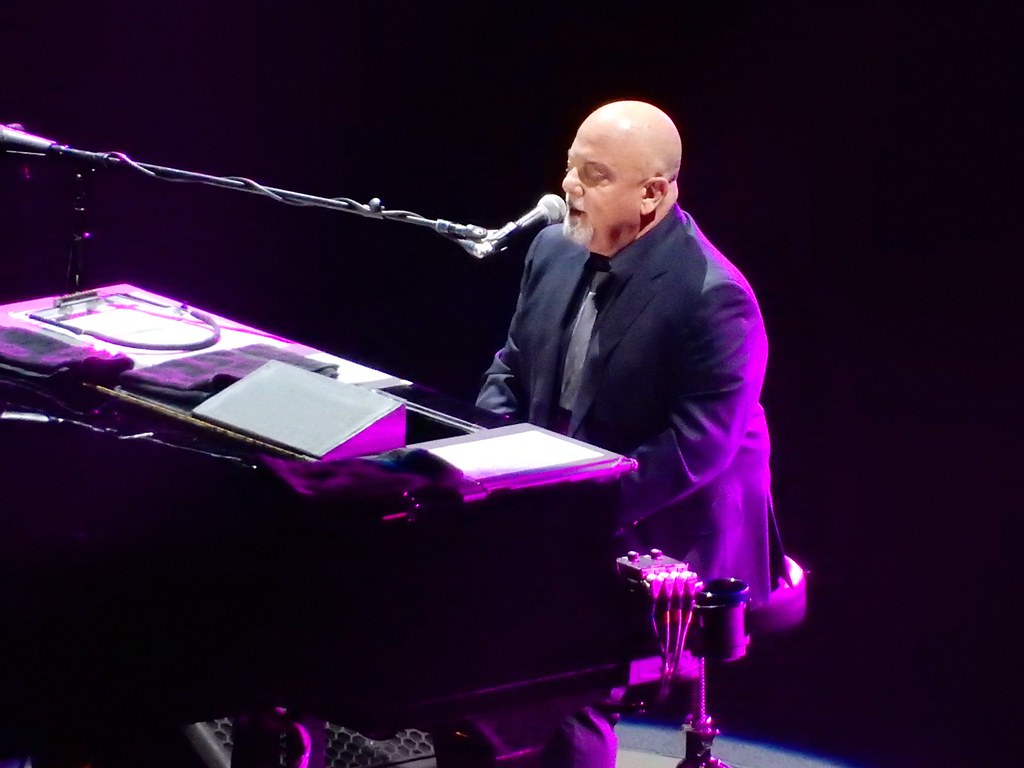
11. **Business Upheaval and the Final Studio Albums: Storm Front to River of Dreams**The recording of *Storm Front*, commencing in 1988, coincided with profound upheaval in Billy Joel’s professional life. In August 1989, prior to the album’s release, Joel dismissed his long-time manager and former brother-in-law, Frank Weber, after an audit revealed major accounting discrepancies. Joel sued Weber for US$90 million, alleging fraud, ultimately being awarded US$2 million in a partial judgment, with Weber’s US$30 million countersuit dismissed.
Amidst this corporate turmoil, Joel sought a fresh musical direction for *Storm Front*. Eschewing his collaboration with Phil Ramone, he enlisted Mick Jones of Foreigner to produce, signaling a deliberate shift in his sound. He also significantly overhauled his backing band, retaining only drummer Liberty DeVitto, guitarist David Brown, and saxophone player Mark Rivera, while bringing in new talents like multi-instrumentalist Crystal Taliefero. This restructuring reflected a desire for renewal, both professionally and artistically.
The album’s lead single, ‘We Didn’t Start the Fire,’ released in September 1989, became Joel’s third—and most recent—US number-one hit. *Storm Front* itself, released in October, achieved a similar triumph, becoming Joel’s first number-one album since *Glass Houses* nine years earlier. The album’s second single, ‘I Go to Extremes,’ reached No. 6 in early 1990. These successes reaffirmed Joel’s enduring appeal even amidst significant personal and professional changes.
Beyond album releases, Joel ventured into other creative avenues. In 1988, he lent his voice to the Disney animated film *Oliver & Company*, playing the sarcastic Jack Russell Terrier, Dodger, a character whose design was notably based on Joel’s own image. He performed the memorable song, ‘Why Should I Worry?’. Joel’s final studio album of original pop/rock material, *River of Dreams*, was released in 1993, marking a significant point as he largely retired from producing new studio material afterward, signaling a shift in career focus.

12. **An Enduring Legacy and Continuing Impact**Although Billy Joel largely retired from producing studio material after *River of Dreams* in 1993, his artistic journey was far from over. He continued to explore new musical territories, notably releasing *Fantasies & Delusions* in 2001, an album entirely comprising classical compositions written by him and performed by British-Korean pianist Richard Hyung-ki Joo. This venture underscored the depth and breadth of his musicality, showcasing a facet of his talent previously glimpsed in his pop and rock songs.
Joel’s impact extends far beyond his recorded output. He has maintained a remarkably successful and enduring touring career, continuing to hold live performances across the globe to adoring audiences. His legendary status at Madison Square Garden, where he holds the record for most concerts performed, is a testament to his unparalleled connection with his fans and his mastery of the live stage. This sustained touring presence ensures that generations continue to experience the power and emotion of his vast catalog.
His profound influence on music has been recognized through numerous prestigious accolades. Joel has been nominated for an impressive 23 Grammy Awards, winning six, including Album of the Year for *52nd Street*. These awards reflect both his commercial success and critical recognition. His induction into the Songwriters Hall of Fame in 1992, the Rock and Roll Hall of Fame in 1999, and the Long Island Music Hall of Fame in 2006 further underscore his indelible mark on American music.
Beyond institutional honors, Joel has received significant cultural recognition, including the 2001 Johnny Mercer Award and being honored at the 2013 Kennedy Center Honors. In a remarkable return to contemporary songwriting, Billy Joel released the single ‘Turn the Lights Back On’ in 2024, demonstrating that even decades after his breakthrough, the ‘Piano Man’ continues to captivate and engage.
Read more about: Beyond the Buzz: Unpacking the Incredible Careers of 10 Actresses Redefining Hollywood Today
From the suburban streets of Long Island to the grandest stages across the globe, Billy Joel’s journey is a vibrant testament to the power of authentic storytelling and timeless melodies. His legacy, built on a foundation of perseverance, artistic courage, and an undeniable ability to articulate the human experience through song, resonates with an enduring clarity. He is not merely a musician but a cultural chronicler, whose piano keys have painted vivid portraits of American life, love, and longing, ensuring his music will continue to echo powerfully through generations to come.



